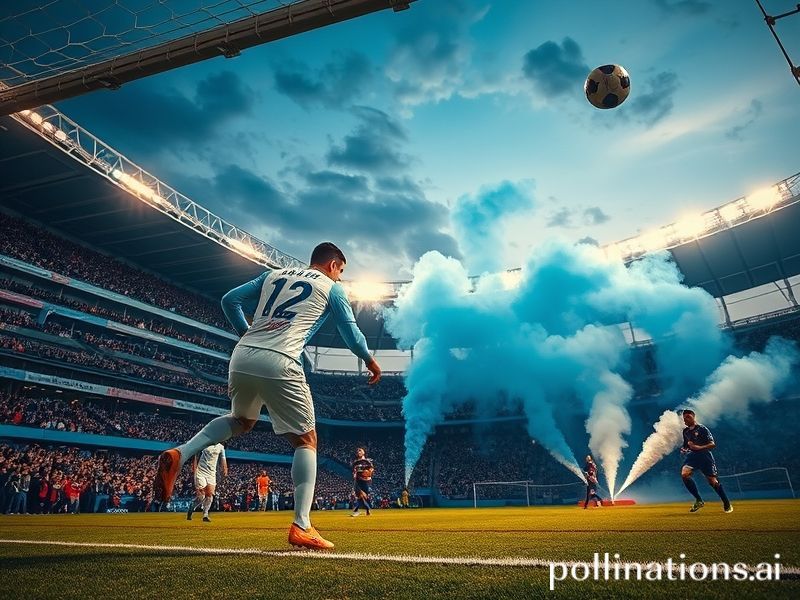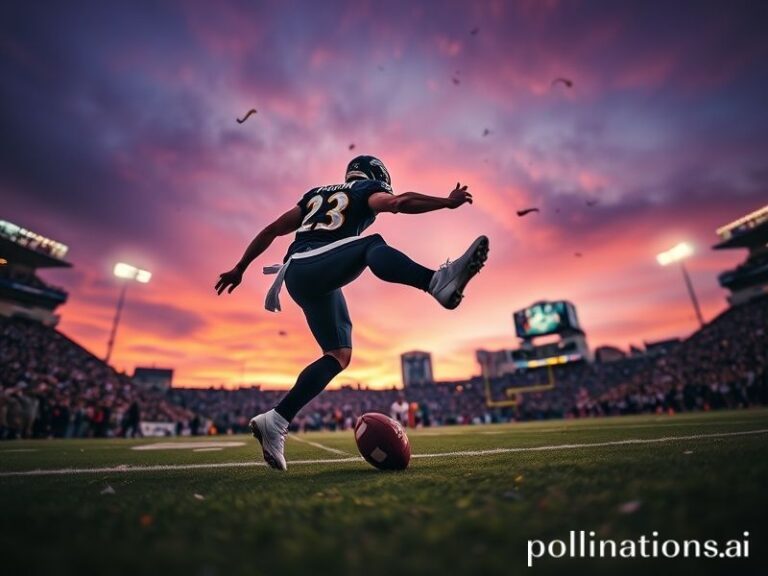Marseille FC: The Mediterranean Megaphone Where Geopolitics, Finance and Flare Smoke Collide
Marseille FC, or Olympique de Marseille if you’re trying to impress a customs officer, is less a football club and more a geopolitical Rorschach test smeared across the Mediterranean. From the Vieux-Port to a Singaporean hedge-fund boardroom, OM’s fortunes ricochet like a badly cleared corner kick, reminding the world that even sport is now just another asset class with terrace chants attached.
Take the ownership saga: a club once bankrolled by Bernard Tapie—a man who could sell you the Eiffel Tower and then get indicted for it—now dances to the algorithmic tune of American venture capital. When Frank McCourt (yes, the parking-lot baron who once turned the Dodgers into an accounting experiment) bought Marseille in 2016, he promised “the Côte d’Azur meets Silicon Valley efficiency.” Eight years later, the Wi-Fi at the Vélodrome still drops every time someone uploads a TikTok of ultras lighting flares shaped like the EU flag. Progress, it seems, is non-linear, much like OM’s back line.
Globally, Marseille functions as Europe’s open-air laboratory for soft-power laundering. Qatar’s beIN Sports pumps in cash via sponsorships that are about as subtle as a Brexit divorce settlement. Meanwhile, Saudi Arabia’s PIF scouts OM’s youth academy the way venture capitalists once swarmed Estonian start-ups: looking for undervalued talent to flip at a 400 percent markup. If geopolitics had a Champions League, Marseille would be the group stage where everyone’s secretly on loan from sovereign wealth funds masquerading as “strategic partners.”
Yet the club’s cultural footprint remains stubbornly local, in the way that Chernobyl remains stubbornly radioactive. Marseille itself is France’s most cosmopolitan city, a place where couscous competes with bouillabaisse for municipal treasure and every third teenager can nutmeg you in three languages. OM’s squad currently lists more passports than a UN peacekeeping mission, and the ultras’ banners switch between Arabic, French, and that universal tongue known as Profanity. When they belt out “Aux armes,” it’s hard to tell whether it’s a call to revolution or just disappointment at the latest VAR decision.
Economically, Marseille is a case study in the trickle-up theory of disappointment. France’s second city suffers 15 percent youth unemployment, but the club’s transfer budget still inflates like a bouncy castle on nitrous oxide. Selling a homegrown winger to the Premier League for €30 million keeps the lights on—and the ultras off the streets for at least a weekend. Call it Keynesian hooliganism: public order achieved one sell-on clause at a time.
Internationally, OM’s oscillation between Europa League glory and mid-table mediocrity offers a comforting parable: even in the age of superclubs, chaos remains undefeated. Liverpool fans console themselves with “next year” rhetoric; Marseille fans have been rehearsing the same dark comedy since 1993, the last time they lifted the European Cup. Since then, the trophy has toured Madrid, Munich, and now, presumably, Riyadh—collecting more stamps than an Instagram influencer—while Marseille collects UEFA fines like Panini stickers.
Which brings us to the broader significance: Marseille FC is the planet’s most honest football club. It advertises contradictions instead of hiding them. It waves a Che Guevara flag while negotiating crypto-sleeve sponsorships. It sings anti-fascist anthems on Tuesday and votes for populists on Sunday. In an era when every institution claims moral clarity, OM provides the refreshing transparency of moral whiplash. If you want to understand the 21st-century condition—capitalism with a human face, nationalism with a global passport—skip Davos and watch a Ligue 1 derby. Just bring riot gear.
Final whistle: Marseille FC is not just eleven players chasing a ball; it’s a multinational circus performing on Europe’s most combustible stage. The clowns are venture capitalists, the fire-eaters are ultras, and the ringmaster is whichever sporting director hasn’t resigned yet. Applaud or don’t—the ticket revenue has already been securitized and sold to a Cayman Islands shell company named after a 1970s disco hit. Somewhere, Tapie is smiling, which is more than the accountants can say.







